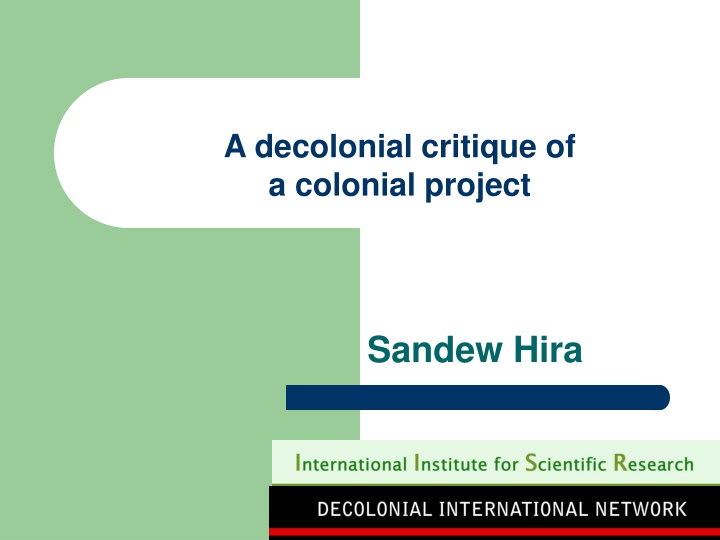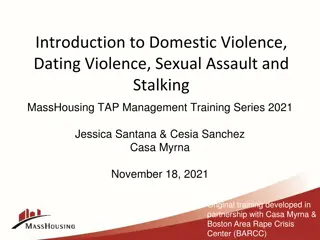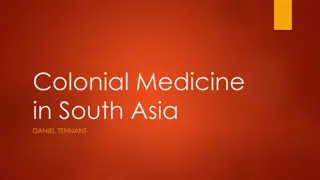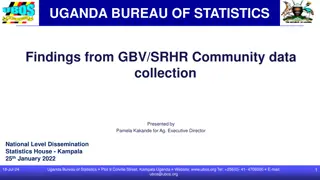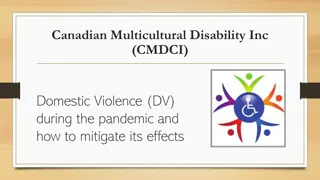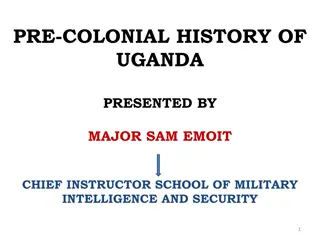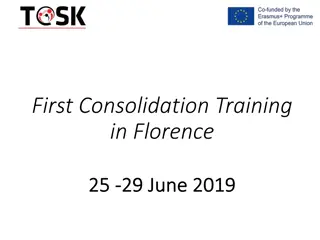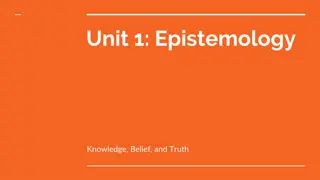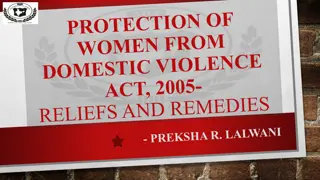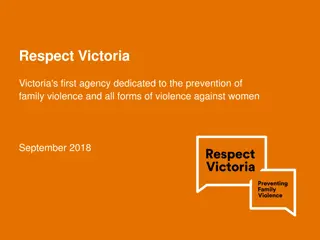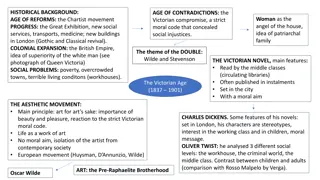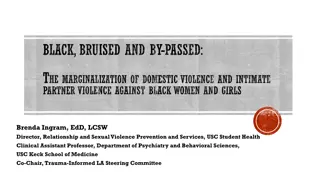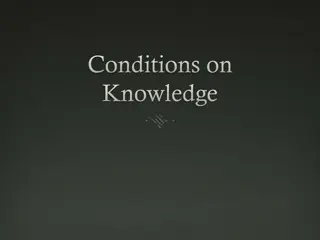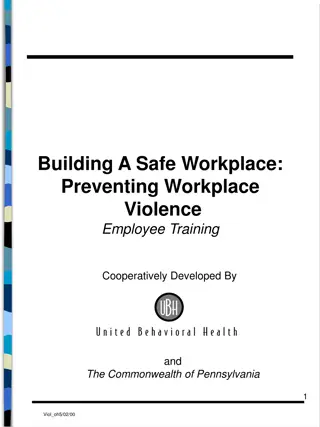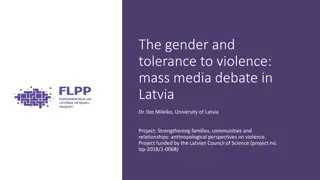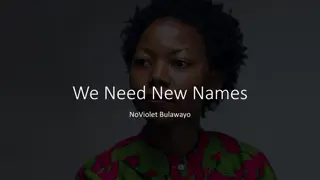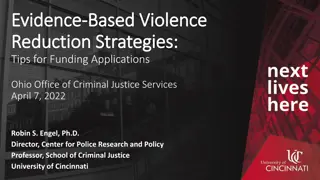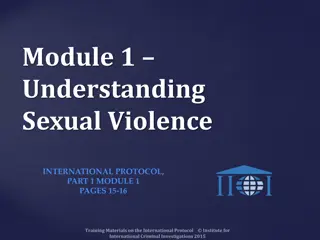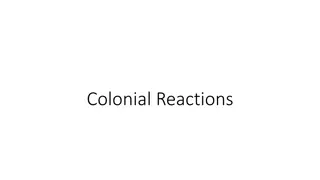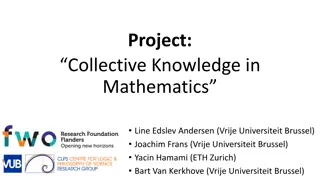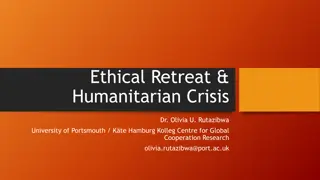Decolonial Critique of Colonial Violence and Epistemology
This content explores decolonial critiques of colonial projects, Western epistemology, DTM epistemology, and the implications of hiding ethics in knowledge production. It delves into the concepts of extreme violence, morality, and the normalization of violence in the context of colonialism and oppression.
Download Presentation

Please find below an Image/Link to download the presentation.
The content on the website is provided AS IS for your information and personal use only. It may not be sold, licensed, or shared on other websites without obtaining consent from the author.If you encounter any issues during the download, it is possible that the publisher has removed the file from their server.
You are allowed to download the files provided on this website for personal or commercial use, subject to the condition that they are used lawfully. All files are the property of their respective owners.
The content on the website is provided AS IS for your information and personal use only. It may not be sold, licensed, or shared on other websites without obtaining consent from the author.
E N D
Presentation Transcript
A decolonial critique of a colonial project Sandew Hira
If you are a professor, that does not mean that you are a scientist, you can be an ideologue of colonialism
Western epistemology David_Hume Kant Hegel David Hume (1711-1776) Immanuel Kant (1724-1804) George Hegel (1770-1831) Truths, errors and lies
DTM epistemology: five elements of a concept 1. Terminology 2. Observation (facts) 3. Analysis, storyline and logic 4. Theory 5. Ethics
What happens when you hide your ethics in knowledge production? 1. Knowledge is only about true or false and not about right or wrong 2. Unjust claim of objectivity 3. Unjust claim of universality 4. You present lies as scientific knowledge
critique #1: extreme and normal violence is not about facts, but about morality "The program, which consist of nine parts, should answer questions about the nature, extent and causes of structural extreme (they use the Dutch term 'grensoverschrijdend') violence in Indonesia, seen from a broader political, social and international context. In this regard extensive attention will be paid to the chaotic period of August 1945 till the beginning of 1946 - often termed as the Bersiap - and the political and social legacy in the Netherlands, Indonesia and other places."
Critique #2: the concept of extreme violence is an insult to the victim of oppression On May 14, 1940 the German bombed the Dutch city of Rotterdam which killed 650-900 victims. On February 13-14 1954 the allied forces carried out a massive bombardment of the city of Dresden which killed 25.000 German, 25 times more than in Rotterdam. How would the Dutch feel when German historians would then claim that the bombing of Rotterdam was not extreme violence but normal violence compared to Dresden?
Critique #3: the concept of extreme violence is a direct legitimization of the crime of colonialism Normal violence means the acceptance of the relationship of power. Colonial power is legitimate as long as they use normal violence. This is nonsense presented as science.
Critique #4: the moral judgment of violence should be related to its purpose and cannot be judged in absolute terms There are two moral categories of violence: the category of the injustice of oppressors violence and the category of the justice of the violence for freedom and liberation. The violence of a woman who is raped by a man cannot be placed in the same moral category of the violence of the rapist.
Critique #5: the most obvious comparison is not made: extreme and normal violence of Nazism and colonialism Scientific research often has a comparative dimension. You compare the phenomenon you want to study in different situations in order to get a better understanding of the phenomenon. In 1945 the Dutch just came out of a struggle for freedom in which they also used violence. The Dutch resistance organized violent resistance in coordination with the allied forces. Shortly after their fight for freedom from Nazism they used violence against the freedom fighters of Indonesia. If you are an objective researcher into violence, why don't you take this obvious comparison into account?
Critique #6: this colonial research project is a racist project Gert Oostindie: "Until now no Indonesian government has ever showed any interest in serious historical research into the war of decolonization, whether it is carried out in cooperation with the Netherlands or not. That is not strange. Open-minded research would undermine the image of a united heroic people that expelled the colonizer under the leadership of the army." How can you know the result of a research that was never started according to your own account?
Critique #7: the legitimization of the racist colonial rule deligitimizes the fight for freedom Jeffry Pondaag: Who gave you white people the moral right to occupy my country that is 11.000 km away from your country and oppress, exploit and humiliate people of color?
Critique #7: the legitimization of the racist colonial rule delegitimizes the fight for freedom - 2 Oostindie: "It is clear without any doubt the Indonesian side have committed cruel crimes - probably on a much larger scale and directly mostly against other Indonesians. "An important part of violence in the Archipel can be explained by the absence of an effective (colonial) power, but reflected further local contradictions of which the Netherland was partly party to, other than in the function of the keeper of public order." "The Dutch military actions should be understood in the context that was given then by the Dutch: protection of the population en restoring law and order."
Critique #8: the colonial project turns the victim into the criminal and the criminal into the victim Oostindie: "Veterans reject Dutch apologies with reference to war crimes of the opponents. "It is clear that the other party was guilty of war crimes on a large scale." His book on Dutch soldiers is "a testimony of honor to these men."
What is Decolonizing The Mind (DTM)? 1. The articulation of a scientific critique of Western knowledge production 2. The production of alternative decolonial concepts. 3. The translation of the alternative knowledge in activism.
Understanding the nature of Westernized academia and the colonization of the mind Universities are not institutes for education but for training the colonized mind Education is the liberation of the mind through free discussion and open debate, critical research and the search for the truth. Training is the imposition of limitations on the mind, disciplining the mind to think in one particular way, acquiring the skills to produce lies and developing the attitude to criminalize people who disagree with you and criticize you.
An alternative decolonial research project 1. Systematically document the crimes of Dutch colonialism 2. Calculate the amount of reparations that the Dutch should pay as compensation for colonialism 3. Documents the resistance struggle against the racist colonizer and its colonial apartheid system
Websites: International Institute for Scientific Research: www.iisr.nl Decolonial International Network: www.din.today Email: sandew.hira@iisr.nl Tel: 0031 64 12 83 785
